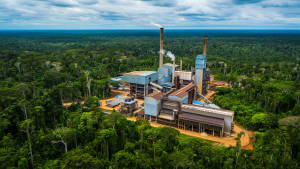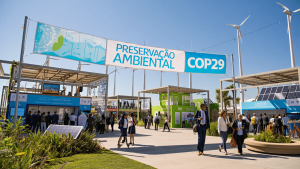- Você não tem itens no seu carrinho de compras
- Subtotal: R$0.00

COP30 will take place in Belém, Brazil – a city at the gateway to the Amazon
What is COP30? Understanding the UN Climate Conference 2025
COP30 marks the 30th Conference of the Parties to the United Nations Framework Convention on Climate Change (UNFCCC). These annual conferences serve as the world’s primary forum for multilateral climate negotiations, bringing together representatives from nearly 200 countries to advance global climate action.
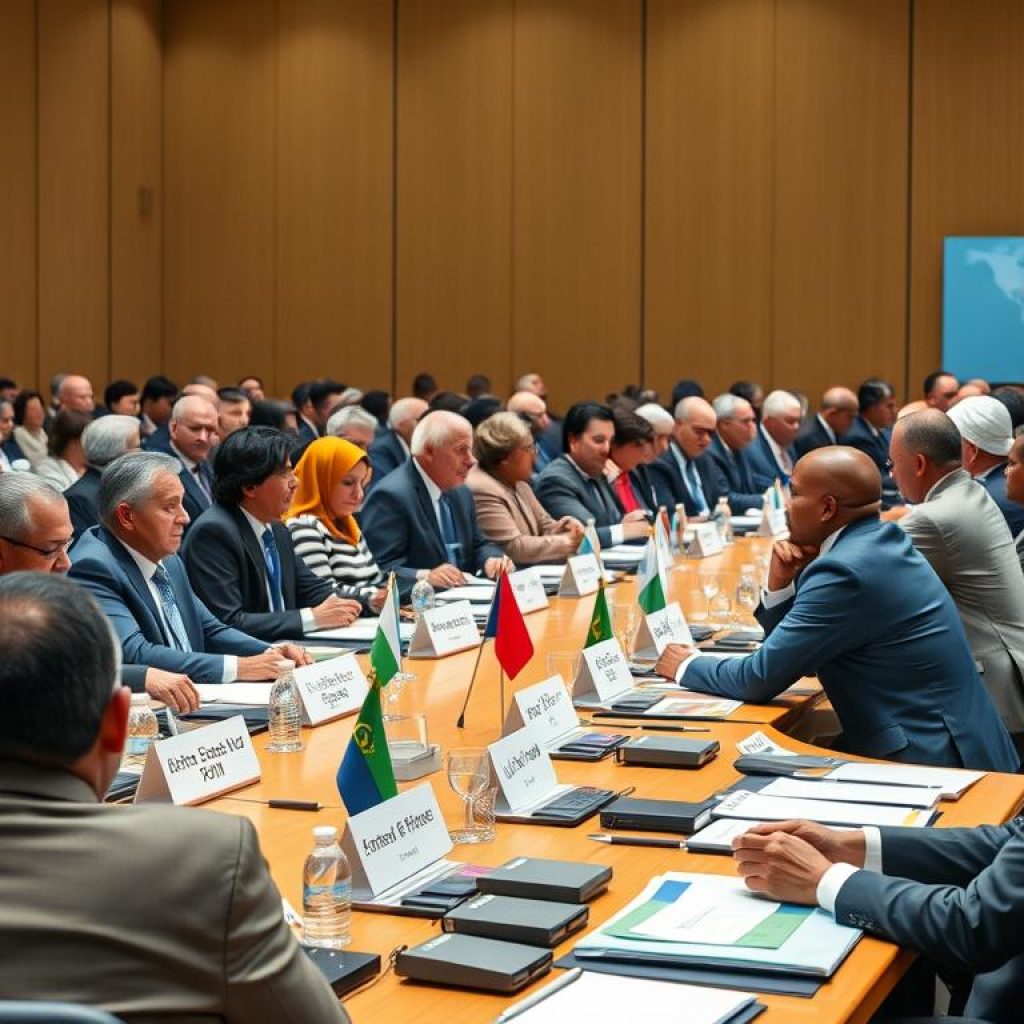
The significance of COP30 is heightened by its timing and location. Taking place five years after the Paris Agreement’s first major stocktake, this conference will evaluate global progress toward limiting temperature rise to 1.5°C above pre-industrial levels. Hosting the event in Brazil’s Amazon region sends a powerful message about the interconnection between forest conservation and climate stability.
“COP30 will be different from all others. One thing is to discuss the Amazon in Egypt; another is to discuss it in Berlin; another is to discuss it in Paris. Now we’re going to discuss the importance of the Amazon within the Amazon.”
According to estimates from the Getúlio Vargas Foundation (FGV), Belém expects to welcome over 40,000 visitors during the conference, including approximately 7,000 official delegates from UN teams and member countries.
Key Themes and Priority Topics at COP30
As climate negotiations evolve, COP30 is expected to focus on several critical areas that will shape the future of global climate action. These priorities reflect both ongoing challenges and emerging opportunities in the fight against climate change.

Climate Finance Reform
Following the establishment of new funding mechanisms at previous COPs, COP30 will focus on implementing and scaling climate finance. Key discussions will center on:
- Mobilizing the promised $100 billion annual climate finance
- Creating transparent tracking mechanisms for fund disbursement
- Developing innovative financing instruments for climate adaptation
- Ensuring equitable access to funding for developing nations
Emission Reduction Targets
With the global carbon budget rapidly depleting, COP30 will emphasize more ambitious emission reduction commitments:
- Strengthening Nationally Determined Contributions (NDCs)
- Accelerating methane emission reduction strategies
- Advancing sectoral decarbonization roadmaps
- Establishing more robust monitoring and verification systems
Loss and Damage Implementation
Building on the historic Loss and Damage Fund established at COP27, the focus will shift to operationalization:
- Finalizing governance structures for the fund
- Developing criteria for accessing compensation
- Creating mechanisms to address non-economic losses
- Integrating indigenous and local knowledge into solutions
Stay Informed on COP30 Developments
Get expert analysis and updates on key negotiation points as they evolve leading up to the conference.
Brazil’s Preparations and Logistical Challenges
Hosting a conference of COP30’s magnitude presents significant logistical challenges, particularly in a city like Belém that requires substantial infrastructure development. The Brazilian government has announced investments of approximately R$4.7 billion (about $850 million USD) to prepare the city.

Infrastructure Development
Key infrastructure projects underway include:
- Transformation of the former Brigadeiro Protásio airport into the 500,000 m² City Park, which will host the conference’s Blue Zone (for official negotiations) and Green Zone (for parallel events)
- Revitalization of major avenues including Visconde de Souza Franco and Tamandaré
- Modernization of traffic systems with smart traffic lights, video monitoring, and intelligent lanes
- Completion of the Belém Metropolitan BRT system connecting six municipalities
Accommodation Solutions
To address accommodation challenges for the expected 40,000+ visitors, Belém is implementing creative solutions:
- Development of private hotels, including the Vila Galé Collection Amazônia
- Creation of the “COP Village” by adapting schools as hostels
- Docking two transatlantic cruise ships at Outeiro district port to provide floating accommodations
- Engaging local communities in homestay programs
Political Context and Challenges
Brazil’s preparations for COP30 occur against a complex political backdrop. The country has faced criticism for deforestation rates in the Amazon, though President Lula’s administration has pledged to reverse this trend. Additionally, tensions between federal climate ambitions and some regional development priorities create potential friction points that could affect conference preparations.
Controversies and Critical Perspectives
As with previous climate conferences, COP30 faces scrutiny from various stakeholders regarding its effectiveness, inclusivity, and potential for meaningful action. Understanding these criticisms is essential for a comprehensive view of the conference’s challenges.

Opportunities
- Spotlight on Amazon conservation and indigenous knowledge
- Platform for Global South leadership in climate negotiations
- Potential for innovative public-private partnerships
- Increased visibility for nature-based climate solutions
Concerns
- Risk of corporate greenwashing overshadowing meaningful action
- Persistent equity gaps between developed and developing nations
- Questions about Belém’s infrastructure readiness
- Tensions between economic development and environmental protection
Indigenous Representation and Rights
A particularly significant controversy surrounds indigenous representation at COP30. While hosting the conference in the Amazon creates opportunities to highlight indigenous perspectives, concerns remain about meaningful inclusion in decision-making processes.
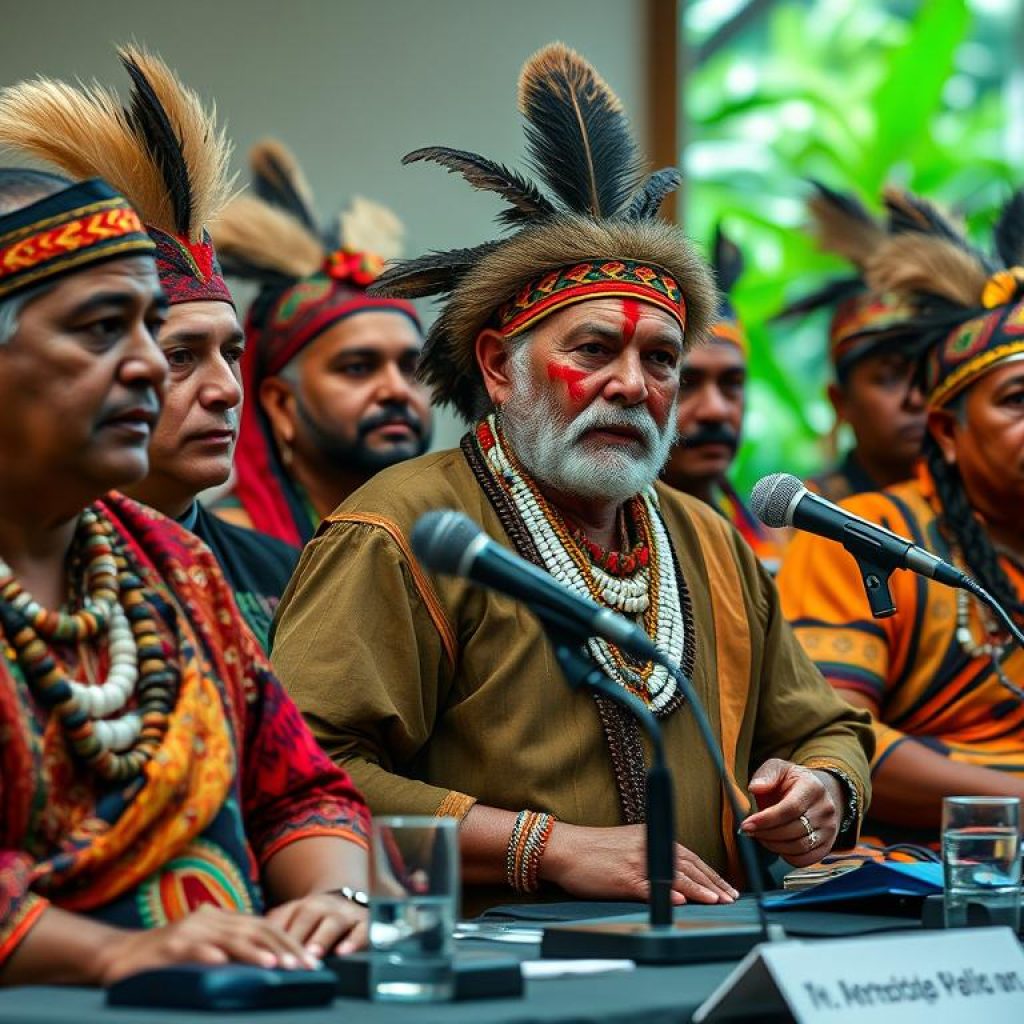
Recent tensions in Pará state, where indigenous communities protested against education policy changes, highlight the complex relationship between government authorities and indigenous peoples. These dynamics could influence how indigenous voices are incorporated into COP30 proceedings.
“COP30 in Brazil cannot be decided by those who want to colonize Mars. Indigenous peoples must have central roles in discussions about our territories and climate solutions.”
Join the Climate Justice Conversation
Connect with organizations working to ensure equitable representation and outcomes at COP30.
Expert Perspectives on COP30’s Significance
Climate scientists, policy experts, and environmental advocates offer valuable insights into COP30’s potential impact on global climate action. Their perspectives help contextualize the conference within broader efforts to address climate change.

Scientific Perspective
“COP30 comes at a critical moment when the window for limiting warming to 1.5°C is rapidly closing. The conference must deliver concrete mechanisms to accelerate decarbonization across all sectors while scaling up adaptation measures for vulnerable communities.”
Policy Perspective
“Brazil’s greatest obligation is to advance climate financing. We need to ensure that resources flow to where they’re most needed and can have the greatest impact, particularly for adaptation in developing countries.”
Civil Society Perspective
“For COP30 to succeed, it must center the voices of those most affected by climate change. This means meaningful participation from indigenous communities, frontline climate defenders, and representatives from climate-vulnerable nations.”
UN Climate Reports: The Scientific Basis
The IPCC’s Sixth Assessment Report provides the scientific foundation for COP30 negotiations, emphasizing several key points:

- Current policies put the world on track for approximately 2.7°C of warming by 2100
- Limiting warming to 1.5°C requires global emissions to peak before 2025
- Carbon dioxide removal technologies will be necessary alongside emissions reductions
- Climate impacts are already affecting every region, with disproportionate effects on vulnerable populations
These scientific findings underscore the urgency of ambitious action at COP30 and highlight the real-world consequences of policy decisions made during the conference.
COP30’s Potential Global Impact
Beyond the immediate outcomes of the negotiations, COP30 has the potential to influence global climate action in several significant ways. Its impact will likely extend across policy, economic, and social dimensions.

Policy Transformation
COP30 could accelerate policy changes at national and subnational levels:
- Strengthened climate legislation across jurisdictions
- Integration of climate considerations into all policy areas
- Enhanced international cooperation frameworks
- New approaches to measuring climate progress
Economic Transition
The conference may catalyze economic shifts toward sustainability:
- Accelerated investment in clean energy infrastructure
- Growth in green jobs and sustainable industries
- Redirection of financial flows away from high-carbon activities
- Development of circular economy initiatives
Social Transformation
COP30’s social impact could extend to communities worldwide:
- Increased awareness of climate justice principles
- Greater recognition of indigenous environmental stewardship
- Expanded participation in climate governance
- New models for community-led adaptation
The Net-Zero Transition
A central focus of COP30 will be accelerating the global transition to net-zero emissions. This involves not only reducing greenhouse gas emissions but also enhancing carbon sinks and developing removal technologies.
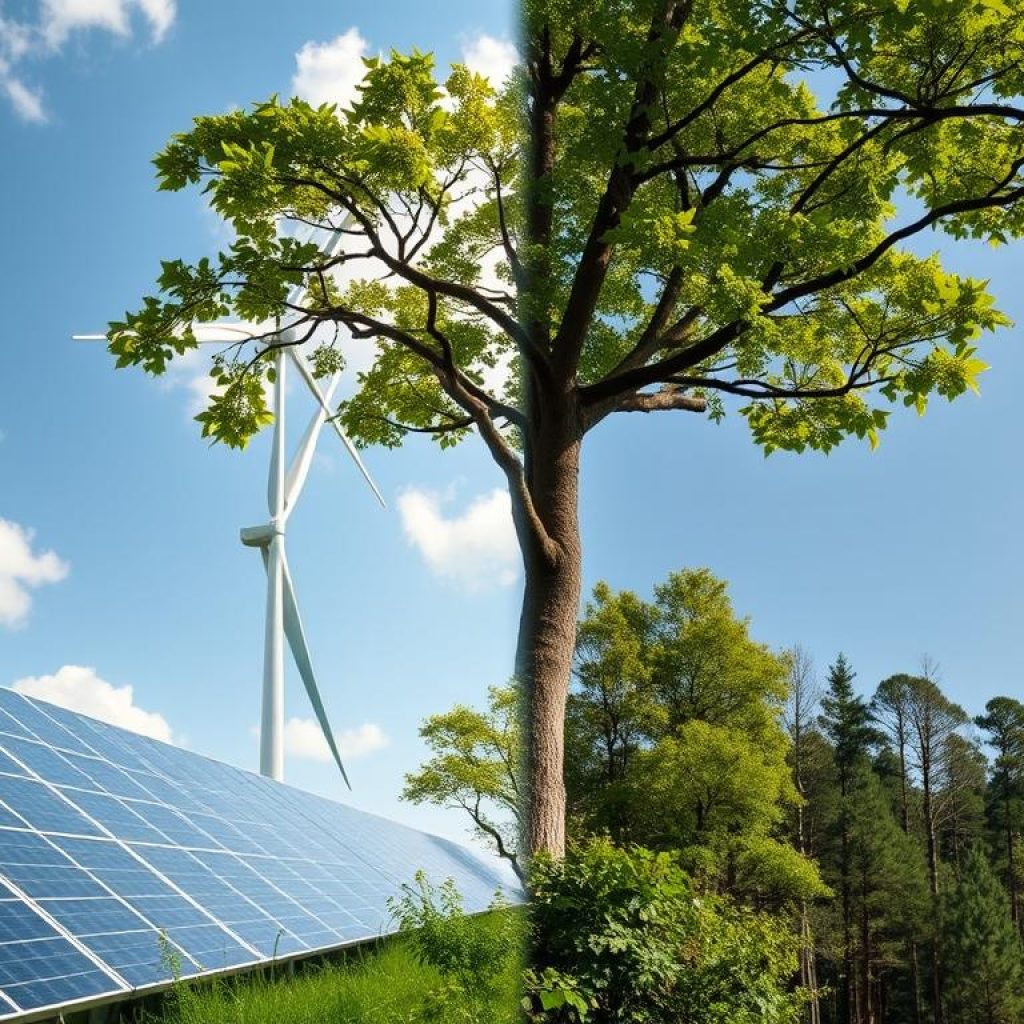
The conference is expected to produce more detailed sectoral pathways for achieving net-zero, with particular attention to high-emitting industries like energy, transportation, and agriculture. These pathways will likely include interim targets, technology deployment milestones, and financing mechanisms.
Conclusion: The Road Ahead to COP30
As the world prepares for COP30 in Belém, the stakes for global climate action have never been higher. This conference represents a crucial opportunity to accelerate the implementation of climate solutions, strengthen international cooperation, and ensure a just transition to a sustainable future.

The success of COP30 will depend on multiple factors: the political will of participating nations, the inclusivity of the process, the ambition of the commitments made, and the mechanisms established for implementation and accountability. By hosting the conference in the Amazon, Brazil has created a powerful symbolic context that highlights both the challenges and opportunities of addressing climate change.
As environmental policy enthusiasts, our role in monitoring, analyzing, and advocating for meaningful outcomes from COP30 is essential. By staying informed and engaged, we can contribute to the momentum for transformative climate action that this pivotal conference aims to generate.
Stay Updated on COP30 Developments
Join our community of environmental policy enthusiasts to receive expert analysis, breaking news, and opportunities to engage as COP30 approaches.

